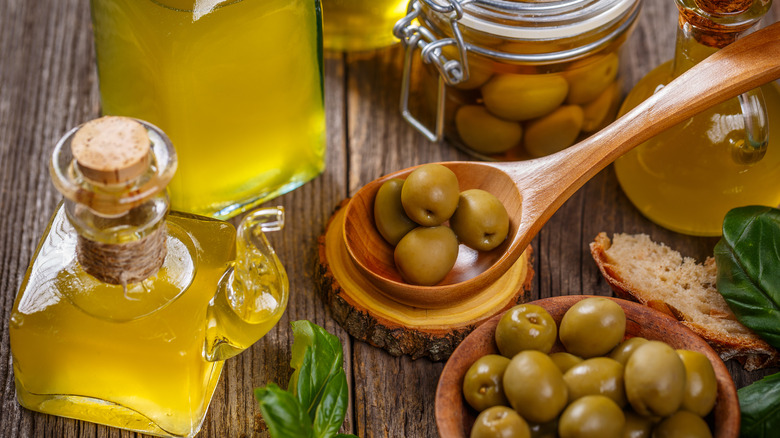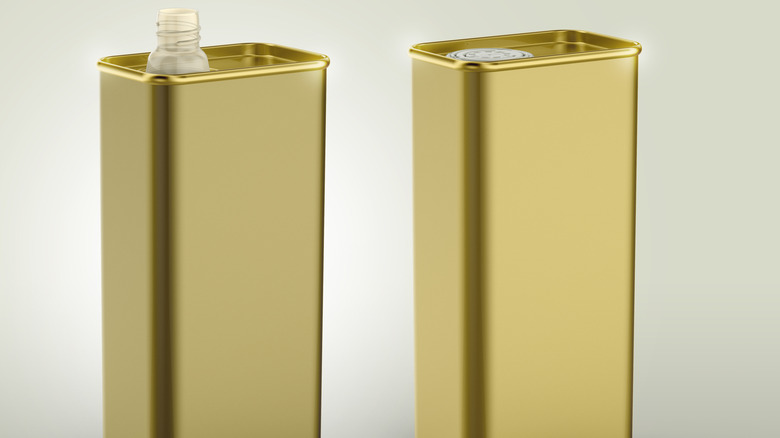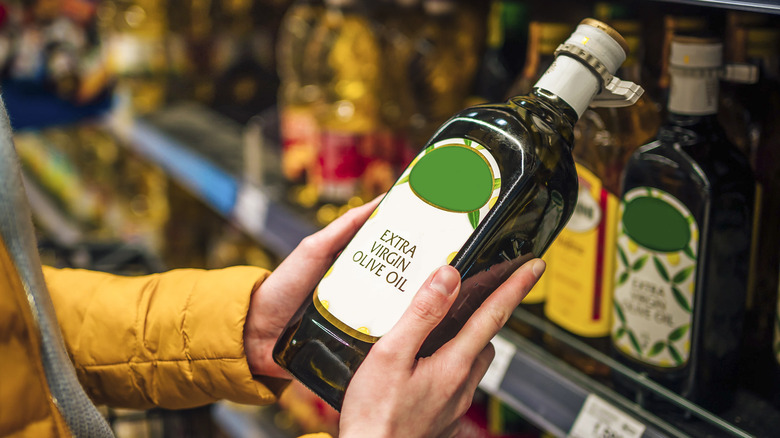Why You Should Buy Olive Oil In Tins Over Glass Bottles
When you grab a bottle of olive oil off the shelf at your local grocery store, you expect that it's going to be bursting with all the antioxidants and flavors that it's famous for. But many factors go into how well-preserved your olive oil is when you get it, including what it's stored in. While Spain is the biggest producer of olive oil in the world, there are many other countries across the globe, from Italy to Tunisia, that make olive oil and ship it thousands of miles.
Added to this are the many issues that can arise before it leaves the processing facility, including storage temperatures and harvesting techniques. Yet the biggest factor in how fresh your olive oil is depends on the kind of container it comes in. Light is the biggest culprit in degrading olive oil, and a tin container that completely keeps light out is the best kind to reach for.
Light negatively affects olive oil
Keeping light away from olive oil is so important because, like most plants and plant-based products, it contains chlorophyll. This pigment that gives plants their greenish color is vital to helping plants produce their own food. But in the case of olive oil, light can activate the chlorophyll in the oil in a process called photooxidation. When the olive oil is exposed to direct light, which can happen if it's in a clear glass or plastic container, the antioxidants begin to break down, and, eventually, the oil can become rancid.
This is especially true with extra virgin olive oil (EVOO), which is made from the first cold pressing of the olive fruit and processed by purely mechanical means at lower temperatures than other methods. Extra virgin olive oil has a shorter shelf life than other olive oils, between 12 and 18 months. A completely opaque tin container prevents light from getting in and wreaking havoc on the EVOO inside. Similarly, this is why olive oil bottles are often green since the darker glass helps prevent light from getting in and affecting the oil.
Oxygen also degrades olive oil
Like light, oxygen also plays a big part in degrading olive oil, negatively impacting its taste and quickly turning the oil rancid. Tin containers are also great at limiting the amount of oxygen coming in contact with the oil inside. Clear plastic bottles are the worst for both allowing oxygen and light to come in contact with the oil. Additionally, small molecules from the plastic can degrade the oil, according to a 2014 UC Davis report.
So no matter how pretty the packaging is on a clear glass or plastic bottle of olive oil, the product inside isn't going to contain the same caliber of flavors and level of antioxidants as similar olive oils in tin packaging. Besides reaching for the canned olive oil over those in clear bottles, there are other considerations when buying olive oil. Get cold-pressed and less refined choices if you're looking for lots of flavor and high antioxidant content. And when possible, reach for a tin.


